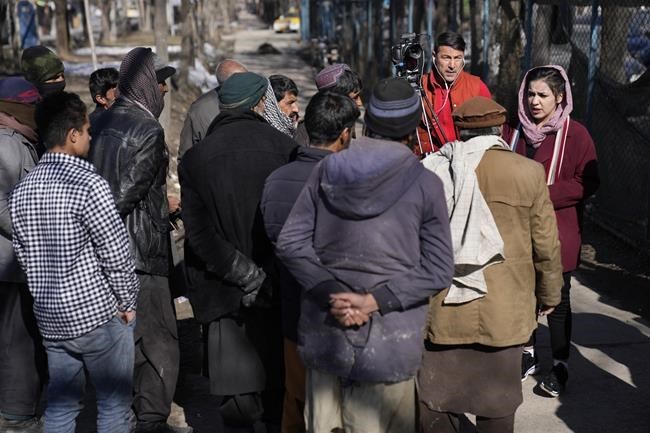KABUL, Afghanistan (AP) — The Taliban have released three employees of Afghanistan's largest television station who were detained over a report that the country's new rulers had banned all broadcasts of foreign drama series, a channel executive said Friday.
Three staffers from TOLO TV were taken from the station on Thursday evening, according to Khpalwak Sapai, head of TOLONews department and one of the arrested. Sapai later said that he and Nafay Khaleeq, the station's legal adviser, were released within hours later Thursday.
Journalist Bahram Aman, a news presenter, was kept in custody overnight and released on Friday evening, the station said.
Moby Group, the media company that owns TOLO TV, said the detentions were the result of the station reporting “about the banning of the foreign drama series” — a decision made by the Taliban-appointed Ministry for the Propagation of Virtue and Prevention of Vice.
The Taliban gave no explanation for their ban, the latest restriction imposed since their takeover of the country in mid-August.
TOLO TV is an Afghan-owned media company with interests in South and Central Asia as well as the Middle East and Africa.
The United Nations and the Committee to Protect Journalists decried the arrests and demanded the Taliban stop harassing Afghan journalists and stifling free expression through threats, arrests and intimidation.
“The Taliban must immediately ... stop detaining and intimidating members of the Afghanistan press corps,” a statement from CPJ said.
The U.N. mission in Afghanistan expressed “its deep concern about the detentions of journalists and the ever increasing restrictions being placed on media in Afghanistan.” The mission, known as UNAMA, said on Twitter: “Time for the Taliban to stop gagging & banning. Time for a constructive dialogue with the Afghan media community.”
The Taliban did not respond to requests for comment from The Associated Press.
Since sweeping back to power last August, the Taliban have sent erratic signals about what the media landscape will look like under their rule, with international journalists sometimes welcomed and Afghan media often attacked.
during the chaotic days of the U.S. withdrawal last August when tens of thousands of Afghans fled or were evacuated by foreign governments and organizations. Many who stayed, and even those who have not had run-ins with the new Taliban rulers, say they are afraid of what tomorrow might bring.
The majority of TOLONews reporters and producers are women. Sapai, the station's executive, said he had made a special effort to recruit and train Afghan women journalists.
In December, Reporters Without Borders and the Afghan Independent Journalist Association said that 231 out of 543 media outlets had closed, while more than 6,400 journalists lost their jobs after the Taliban takeover. The outlets closed for lack of funds or because journalists had left the country, according to the report.
Kathy Gannon, The Associated Press


